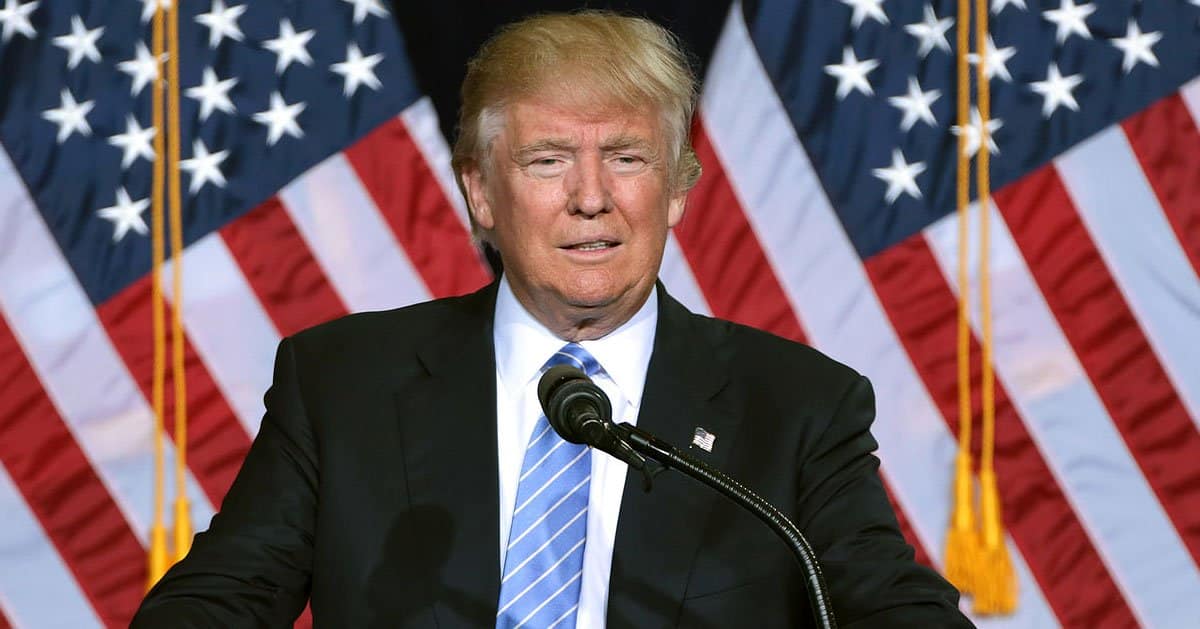







With the clock ticking toward a partial government shutdown, President Trump has stepped into the fray, agreeing to a high-stakes meeting with congressional leaders on Monday to hammer out a deal.
The urgency couldn’t be higher as Trump, House Speaker Mike Johnson (R-La.), Senate Majority Leader John Thune (R-S.D.), House Minority Leader Hakeem Jeffries, and Senate Minority Leader Chuck Schumer prepare to negotiate a bipartisan spending agreement before the funding deadline hits at 11:59 p.m. Tuesday.
The New York Post reported that earlier this month, the GOP-led House passed a straightforward stopgap measure to keep the government funded through mid-November, a practical move to buy time for broader talks.
But Senate Democrats, wielding the filibuster’s 60-vote threshold, blocked the bill, demanding healthcare policy concessions like reversing Medicaid changes and extending Affordable Care Act subsidies. It’s a classic standoff—pragmatism versus progressive priorities.
Last week, Trump initially scrapped a planned discussion with Democratic leaders after consulting with Johnson and Thune, signaling a hard line against caving to demands. It seemed like a message: no deal on Democrat terms. But with the deadline looming, pressure mounted for dialogue.
On Friday, Schumer reached out to Thune, pushing for a White House sit-down as the shutdown threat grew real. By Monday, Trump reversed course, setting the stage for this critical meeting. It’s a rare pivot, but necessity often trumps posturing.
Meanwhile, behind the scenes, Trump’s Office of Management and Budget Director Russ Vought sent a chilling memo on Wednesday to federal agency heads, ordering them to prepare lists of employees for permanent layoffs in case funding lapses. Talk about a wake-up call. This isn’t just political theater; real jobs hang in the balance.
Democrats aren’t budging, insisting on healthcare reforms as part of any deal, including undoing Medicaid tweaks from recent legislation and bolstering ACA subsidies.
Some GOP lawmakers in both chambers have hinted at openness to extending those subsidies—if paired with other reforms—but Thune and Johnson are adamant that healthcare be tackled separately from shutdown talks. Smart move, or risky delay?
“The deal is not ready to be done,” Thune declared on NBC’s “Meet the Press” on Sunday. That’s an understatement, Senator. Mixing divisive healthcare policy with a must-pass funding bill feels like a recipe for gridlock, not progress.
Johnson, for his part, has said the House will address ACA subsidy expirations later this year, closer to their deadline. It’s a calculated gamble to keep the focus on funding now, though it risks alienating those who see healthcare as non-negotiable.
While the House remains on recess, Johnson has no plans to recall lawmakers to Washington on Monday or Tuesday, a clear tactic to pressure Senate Democrats into accepting the House’s stopgap measure. It’s a bold stare-down, betting that Democrats blink first. But with the Senate gaveling back into session this week, the heat is on.
Jeffries, staying put in Washington last week, held daily press conferences to keep the spotlight on the issue, a move that screams political theater but also shows determination.
Democrats are under fire from their base to resist Trump’s agenda at every turn. Will this Monday meeting be a genuine olive branch or just a photo op?
Schumer, too, faces scrutiny after catching flak in March for not blocking a GOP-backed stopgap measure, with some even calling for a primary challenge in a future reelection bid. That’s a long memory for political missteps. He’s likely eager to prove his mettle now.
Congress has the duty to fund the government each fiscal year, which began on October 1, and failing to do so means a partial shutdown that could disrupt countless lives. It’s not just about partisan wins; it’s about keeping the lights on for essential services. Both sides know the public won’t forgive a needless collapse.



